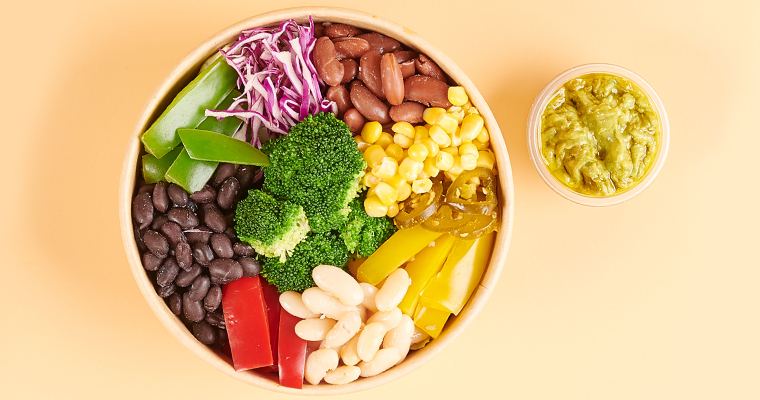Pulse of Information
Stay updated with the latest news and insights.
Protein: Your New Best Friend in the Kitchen
Unlock the secret to delicious meals! Discover how protein can transform your cooking and elevate your culinary game today!
5 Easy Ways to Incorporate More Protein into Your Meals
Incorporating more protein into your meals can be both easy and delicious. Here are 5 easy ways to boost your protein intake:
- Start Your Day with Eggs: Eggs are a fantastic source of protein and can be prepared in countless ways. Whether you prefer them scrambled, poached, or boiled, adding eggs to your breakfast can set a strong nutritional foundation for the day.
- Choose Greek Yogurt: Swap regular yogurt for Greek yogurt, which contains nearly double the protein. Enjoy it as a snack, in smoothies, or as a base for sauces and dressings.
- Add Legumes to Salads: Beans and lentils are not only rich in protein but also packed with fiber. Toss them into salads for an extra nutrient boost that will keep you full longer.
In addition to these tips, consider these further ways to easily enhance your meals:
- Snack on Nuts and Seeds: Almonds, walnuts, and chia seeds are great sources of protein and healthy fats. They make for a perfect snack to keep your energy levels up throughout the day.
- Opt for Lean Meat and Fish: When planning lunches or dinners, select lean cuts of meat or fish like chicken breast, turkey, or salmon. These options provide high protein without excess saturated fat.

The Best Protein Sources for Every Dietary Preference
Choosing the right protein source is essential for maintaining a balanced diet, but with various dietary preferences, it can be challenging to find options that fit everyone's needs. For omnivores, traditional sources like chicken, fish, and beef are rich in protein and provide essential amino acids. However, for those following a vegetarian diet, legumes such as lentils and chickpeas, along with dairy products like Greek yogurt and cheese, offer excellent protein alternatives. On the other hand, vegans can incorporate tofu, quinoa, and hemp seeds into their meals to ensure they meet their protein requirements without animal products.
For individuals with gluten intolerance or those who follow a paleo diet, there are several options that cater to these specific needs. For instance, nuts and seeds, like almonds and chia seeds, provide a protein boost while being naturally gluten-free. Additionally, eggs are a fantastic protein source for those who consume animal products and fit well within both paleo and low-carb guidelines. No matter your dietary preference, there are abundant protein sources to choose from, ensuring that you can enjoy a nutritious diet tailored to your lifestyle.
Why Protein is Essential for Your Health: Myths vs. Facts
When it comes to health and nutrition, protein often finds itself at the center of numerous myths. One common misconception is that only bodybuilders need extra protein to build muscle. In reality, protein is crucial for everyone, as it plays a vital role in repairing tissues, producing enzymes, and supporting immune function. According to recent studies, a balanced intake of protein can enhance overall health, irrespective of fitness goals. For most individuals, a diet that includes a variety of protein sources—such as lean meats, dairy, legumes, and nuts—can satisfy their daily requirements without needing supplementation.
Another prevalent myth is that consuming too much protein can harm your kidneys. While it's true that those with pre-existing kidney conditions should monitor their protein intake, studies show that healthy individuals can safely consume higher amounts without negative effects. In fact, a diet rich in protein can promote weight loss by increasing satiety, thereby helping in better weight management. It's essential to dispel these myths and focus on the facts: a well-rounded diet that includes adequate protein is essential for maintaining optimal health and well-being.